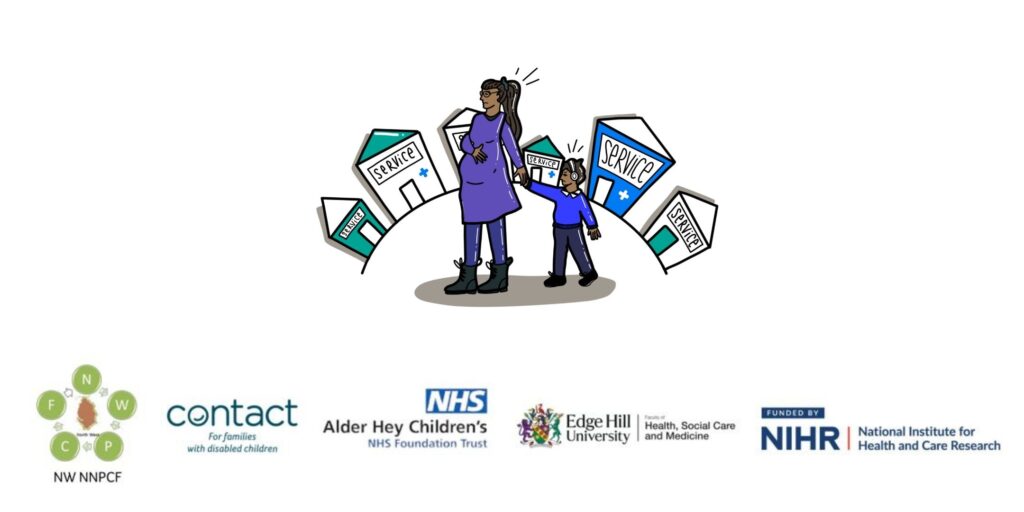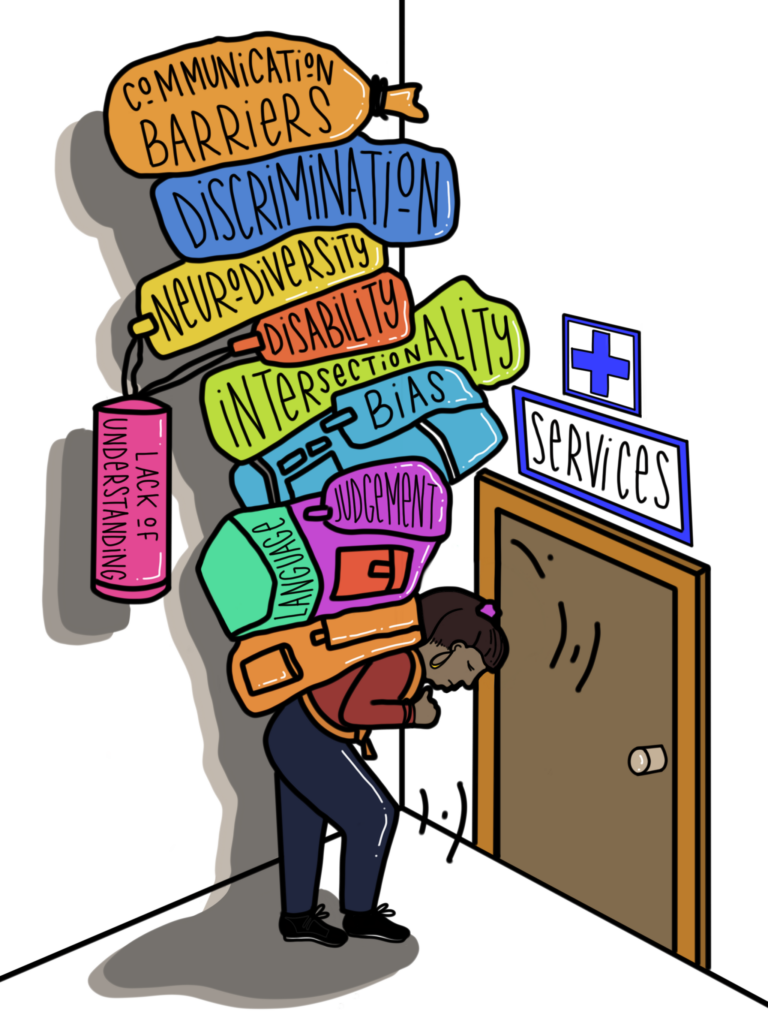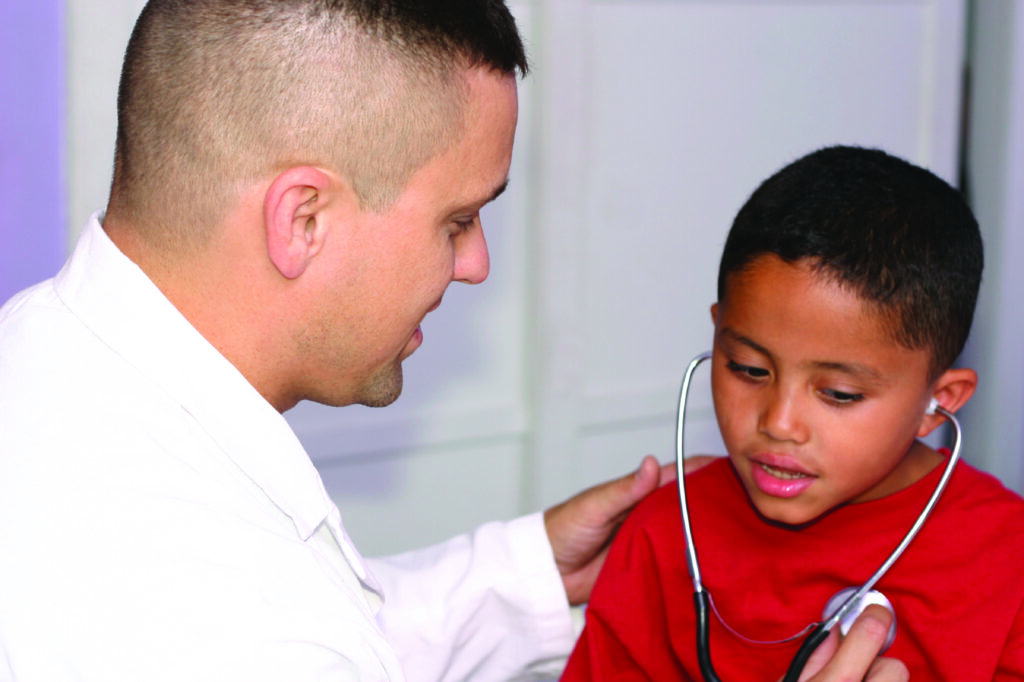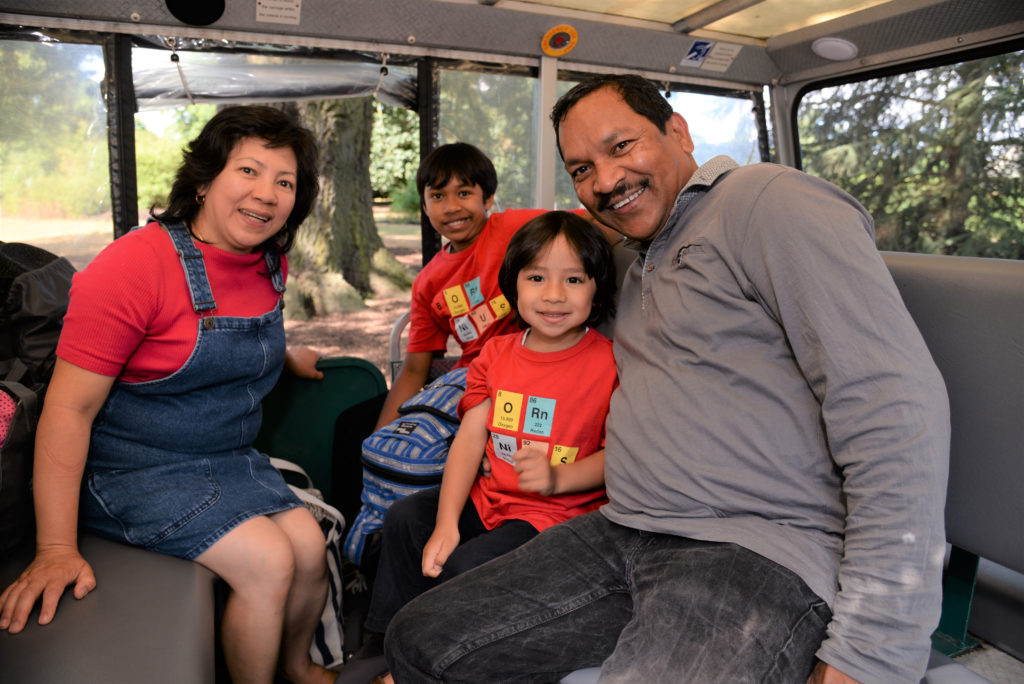The ‘Access to Healthcare North West’ research project

Our project to find out what deters disabled and neurodiverse children and young people from under-represented communities in the North West from accessing healthcare.
In this article
About the research
Neurodivergent and/or disabled children and their families from under-served communities have less access to healthcare services. They have poorer health and life expectancy. Many children and families facing discrimination are not involved in healthcare decision-making and are less-heard within research.
We carried out research to investigate why this is and what measures can help reduce these barriers. We heard from groups in North West England to understand what they find difficult about accessing and using healthcare services; what would help; and how to reach out, work with and learn from them. Children, young people and parent carers from the communities involved made key decisions and co-produced the project.
The project is grant-funded by the National Institute for Health and Care Research. It is based in the North West of England. It has been collaboratively developed between Contact, Alder Hey Children’s NHS Trust, Edge Hill University and the North West National Network of Parent Carer Forums (NW NNPCF).
Below: Watch our recording to hear about how we worked with children, young people and families to co-create this research, and hear what families and young people said about what helps them to access the healthcare they need.
What did the research involve?
Parent carer forums identified communities facing the greatest challenges in accessing healthcare. The communities were:
- Neurodivergent and/or disabled young people.
- Asylum seeker and refugee families.
- Gypsy, Roma or Irish Traveller heritage families.
- Parent carers who are themselves neurodivergent and/or disabled.
We worked with trusted “community connectors” and families from the communities to develop accessible and culturally acceptable ways to hear from them.
We used online surveys, face-to-face and online interviews, group discussions and activities to hear from 65 young people and 159 parent carers from the four communities.
What did we find out?
We heard accessing healthcare was challenging. Parent carers and young people said they experienced difficulties with:
- Making and getting to appointments.
- Navigating services.
- Communicating with professionals.
- Overwhelming environments.
Young people and parent carers said they often felt judged, dismissed and discriminated against, due to a lack of understanding about culture and language.
Services often caused more harm than good. This led to experiences of trauma, avoiding services, accessing healthcare alternative ways.
“They dismissed his concerns and were rude to him and so he wouldn’t go back.”
We shared the findings with communities in group discussions and “agreed ways forward”, including priorities for future work. We also co-wrote simple summaries of the findings. The views expressed in these reports are those of the author(s) and not necessarily those of the NIHR or the Department of Health and Social Care.
Download the findings for:
- Neurodivergent and/or disabled young people.
- Asylum seeker and refugee families.
- Gypsy, Roma or Irish Traveller heritage families.
- Parent carers who are themselves neurodivergent and/or disabled.
This project has discovered important priorities for neurodivergent and/or disabled children and their parents from under-served communities to drive further research and service change.
“Noise, smells, too many people. All of this is overwhelming. I don’t like my name being shown on a screen. I feel like it’s a breach of confidentiality.”
Next steps
Neurodivergent and/or disabled young people, along with parent carers, have highlighted the urgent need for healthcare services to better meet their needs and ensure their right to access care. The team is now focused on advancing this effort to continue working with community connectors to address the priorities for change identified by the communities.
“I enjoyed working on the project. I always felt that my voice was heard and I could give my views as a parent and they were taken on board. It was a good way of working together and a good example of when co production can work as everyone feels that they have a voice and can express their views of how they want services to be shaped in order to meet their needs.
“Going forward it would be great if our findings can be implemented in healthcare settings to make things easier for families.”
Noreen Arif, Research Steering Group member and parent carer.
Acknowledgements
We wish to thank the community connectors, parent carer forums and individuals who have helped us with this research. In the interests of privacy, we have not named all the organisations involved, but we recognise the significant contributions from our community partners have been vital to the success of this project.
Research team
Prof Lucy Bray, Child Health Literacy, Edge Hill University [email protected]
Kath Bromfield, National Network of Parent Carer Forums [email protected]
Carolyn Deveney, Assistant Director, Parent Participation, Contact
Dr Joann Kiernan, Consultant LD Nurse Alder Hey and Senior Lecturer
Mary Mulvey-Oates, Manager for Early Years & Participatory Research, Contact [email protected]
Illustrations by https://karlarimaitis.co.uk/contact
Get in touch
If you would like any further information, please get in touch- [email protected]
Related stories

Partnership honoured for outstanding work in Special Needs and Disabilities
Thursday 13 February 2025

Breaking Barriers: Improving healthcare access for neurodiverse and disabled children in under-represented communities
Wednesday 13 March 2024

Contact first: Research grant awarded to investigate what deters under-represented communities from accessing health care services
Wednesday 23 August 2023
From our partners
The image at the top of this page was created at an NHS and parent carer forum partnership event in Warrington.